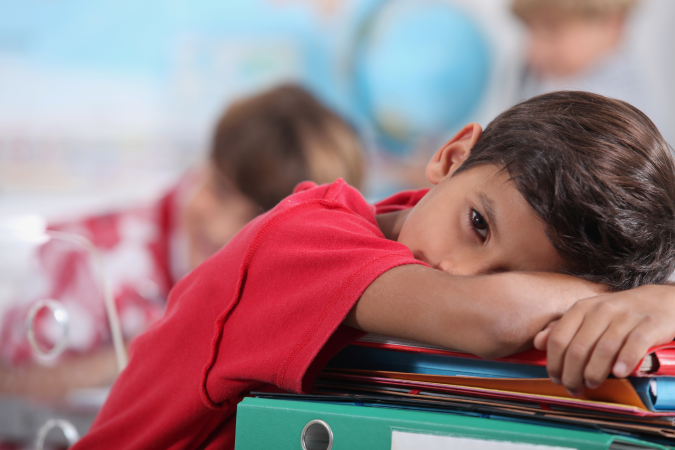March 5, 2024
How to Help a Grieving Child

The Childhood Bereavement Estimation Model reports 47,000 Iowa children will experience the death of a parent or sibling by age 18. Grief can affect a child in important ways. Research from the Harvard University Center on the Developing Child concludes that unaddressed grief can negatively affect healthy development, school success and self-esteem.
But how do we talk to children about death?
“Children do better when we're honest with them and we let them know they can ask us anything,” says Ashley Mori, director of EveryStep Grief & Loss Services. Mori says how we help a grieving child varies by developmental stage.
Infants
While infants don’t understand the concept of death, they can grasp whether adults in their life are sad or angry. “Infants kind of absorb that,” says Mori. “It is important and okay for us to display our emotions because that helps to role model that those emotions will happen, and that you can come out the other side of them.”
Preschoolers
Preschool-aged children tend to see death as reversible, because when it’s out of sight, it’s out of mind for them. For this age, it’s important to talk about what causes death. “You can explain that just like a tree needs oxygen, dirt, sun and water, and that eventually the tree will die, humans need things to live and at some point, will die,” says Mori. “Keep it very simplistic.”
Elementary School Ages
“Elementary school aged children really do understand the permanence of death,” says Mori. “That's where that switch happens. But
“Children do better when we're honest with them and we let them know they can ask us anything.”
they can struggle with the events that lead to someone dying.” Mori says it’s important to be honest and allow them to ask questions. “They also need to be able to understand a simple explanation of death and how their loved one died.”
Middle Schoolers
These children have a full understanding of the physical aspects of death, and the events and concepts surrounding death. “This is an age where children can start to question if the death is their fault — if they did something wrong,” says Mori. It’s important to work through these kinds of questions and issues so they have a full and clear understanding of the death.
High Schoolers
High schoolers can understand the community-wide impact a death can have, so it’s important to expand your conversations around that, as well.
“No matter what, and I know that a lot of people really struggle with this, especially when it comes to stigmatized deaths like suicide, homicide, or overdose, kids benefit from an honest conversation,” says Mori. “Use language that is consistent and honest about the death. Those kids are going to become adults and learn what happened at some point. If they learn something different than what they were told, then the confusion, anger and frustration start to come up, and the processing of grief can be impacted.”
EveryStep Grief & Loss Services offers resources, events and groups for children grieving the loss of a loved one, beginning at age 5. Children are separated by development and age. You can also download EveryStep’s free resource, “A Guide to Children’s Grief, Loss & Healing”.
Additionally, EveryStep facilitates groups in school systems in both rural Iowa and in Des Moines. There are children’s day camps in the summer and holiday programming, as well. To learn more about EveryStep’s wide array of grief services for children and adults, visit https://www.everystep.org/services/grief-loss.
If you or someone you know needs care or support, complete the confidential "Find Care" form at www.everystep.org/find-care. The form sends a message to EveryStep staff who then follow up with a phone call. It's a great way to start a conversation and get answers with no cost or commitment. EveryStep can connect the individual to its own programs and services that may be helpful, as well as services offered by other organizations and providers in the community.